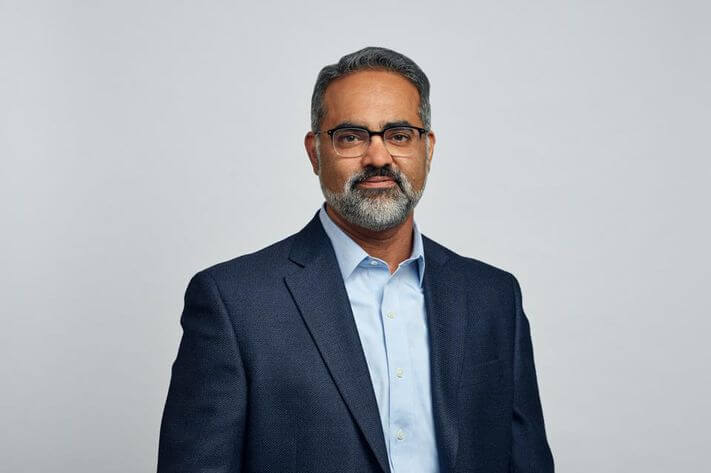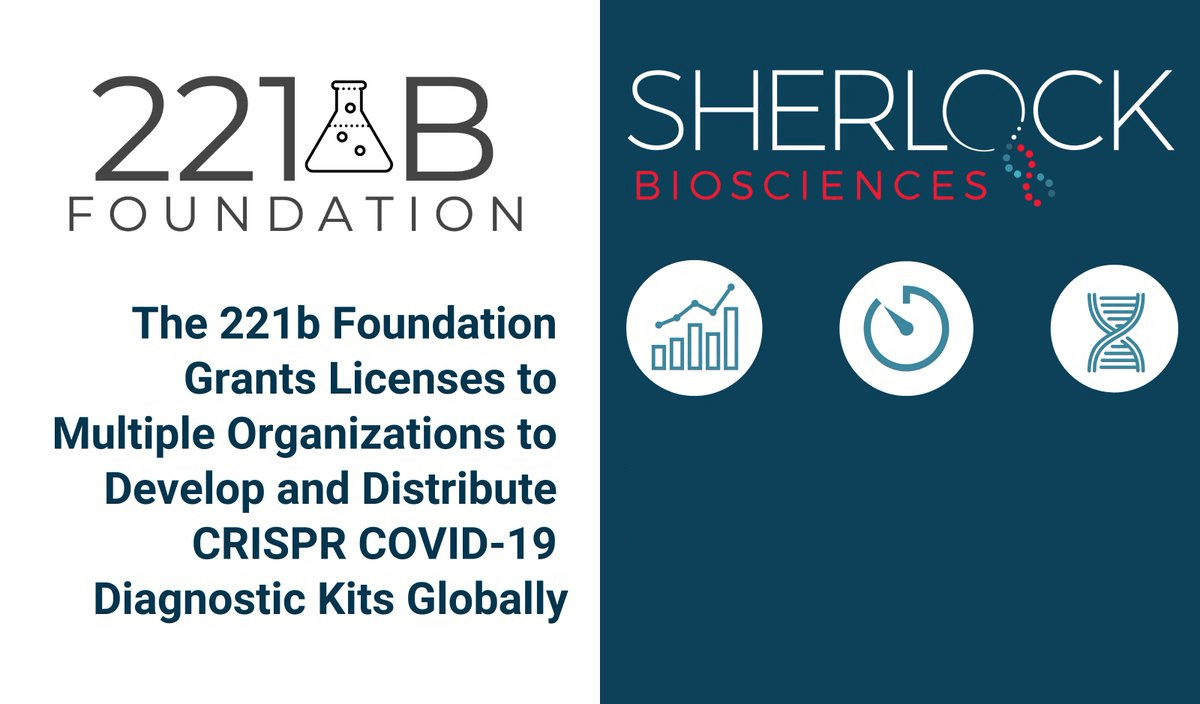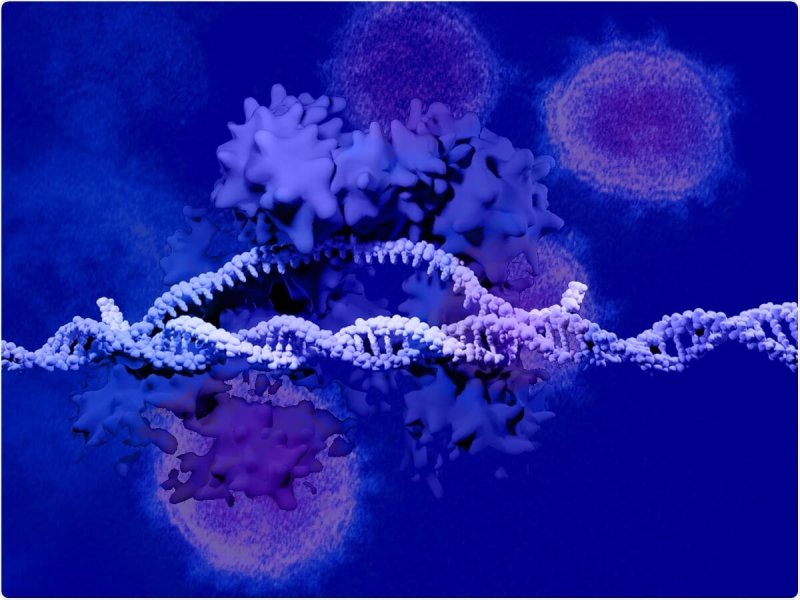
John Cumbers: It’s been a year since Sherlock Biosciences received approval for the first-ever FDA authorization of a Crispr product. What impact has this had for both Sherlock and synthetic biology?
Rahul Dhanda: I think that authorization was historic for both Sherlock and the synthetic biology community because it represented a translation of these technologies into actual healthcare use. The impact for Sherlock has been a vast acceleration of the platform.
For synthetic biology, I think there’s this moment where the pandemic has given us an opportunity and synthetic biology has actually delivered on the promise that it’s always had. In addition to mRNA therapeutics, the community has accomplished the goals of rapid design and rapid response to rapid impact in very cost-effective ways. I feel like this past year has moved the industry from an idea to something that is very concretely recognized as a real solution.
JC: What is the 221b Foundation?
RD: The 221b Foundation is a nonprofit that Sherlock established to place our CrisprCOVID IP in an open innovation model for anyone to access if they want to develop a Crispr diagnostic to fight the pandemic.
The goal of it is not just to make more solutions available for COVID testing and addressing the pandemic. It’s also to take those profits and reinvest them in STEM education opportunities, particularly for minorities, young girls, and women. The profits that we make from [the pandemic] are something we feel we need to be giving back.

A pandemic is not an opportunity to just hoard and harvest profit. It’s something that has accelerated so many companies and so many platforms, we felt the responsible thing was to take the economic benefits and reinvest them in the communities. We want to make sure that for things we can’t necessarily influence with our products, we can have more of an influence in terms of establishing health equity.
If we can increase the representation of those who aren’t always represented in STEM programs, we can also increase the way that those disciplines think about medicine and those patients who aren’t always receiving the best of care or equal treatment.
JC: How does LogicInk fit into the overall vision for Sherlock?
RD: Sherlock’s vision is really to make sure that individuals can take control of their healthcare. LogicInk has a technology that can leverage Crispr in a way that potentially delivers instrument-free, power-free, self-administered tests similar to our INSPECTR platform. Our goal isn’t just to develop our technologies. Our goal is to use the advantages we have in our platforms and the insights that we’ve gained to make sure that innovation across the industry continues to deliver the best solutions for patients globally.
JC: As more strains of SARS-CoV-2 emerge and evolve, what can the synthetic biology industry do to respond quickly and to reach underserved populations?
RD: Synthetic biology offers a very unique set of solutions to problems like emerging and evolving strains. One of the things that I think is most important is that these tools—whether they’re therapeutic or diagnostic—have been proven to be very robust and rapid in their response to new information. By taking the genetic sequences from these new strains, we can rapidly develop diagnostic tests. Now that we’ve proven [synthetic biology techniques] with mRNA vaccines, we can also rapidly develop specific responses to emerging strains. This rapid response won’t just be in the vaccine space, we’re going to see this in a therapeutic space as well.
I think half of the equation is just how powerful these tools are in quickly responding, designing, and building kinds of therapeutic and diagnostic products. The other half is that the efficiencies we’re gaining from these new ways of doing things are driving up both scale and reach; the more of this we do, the more that we will have economies of scale. Even in the absence of economies of scale, these techniques have proven to be much more cost-effective than traditional techniques. Not only are we making better solutions more quickly, but we’re also making them cheaper and more accessible.
JC: The last 12 months have been transformative for the synthetic biology industry in so many ways. What did the next 12 months look like for Sherlock?
RD: For Sherlock, it’s really taking these two platforms we have—Crispr and our synthetic gene network and cell-free system, INSPECTR—and driving those platforms forward. We have learned a tremendous amount from the Crispr product we developed. We’ve granted almost half a dozen licenses to [deliver new products] with partners to take our technology into various forums in various geographies. And we’ve channeled what we’ve learned into INSPECTR, which is a unique, instrument-free, power-free, self-administered test that has lab-accurate results equivalent to any PCR.
What we’re anticipating over the next 12 months is furthering both of these platforms but they are now going into “product focus.” We’re developing a COVID base respiratory test with our INSPECTR platform. We anticipate we’ll be expanding our menu as well as expanding our products and doing that on a more rapid timeline. The next 12 months for Sherlock is moving what is an early-stage product development company into a more mature, more robust company that more frequently launches products.
JC: It’s been great talking with you, Rahul. I’m looking forward to what comes next.
RD: Thanks so much, John, this has been great.
John Cumbers is the founder and CEO of SynBioBeta, the leading community of innovators, investors, engineers, and thinkers who share a passion for using synthetic biology to build a better, more sustainable universe. He is an operating partner and investor at the hard tech investment fund Data Collective, and a former bioengineer at NASA. Follow him on Twitter @johncumbers and @SynBioBeta
A version of this article was originally published at Forbes and has been republished here with permission. Find Forbes on Twitter @Forbes































